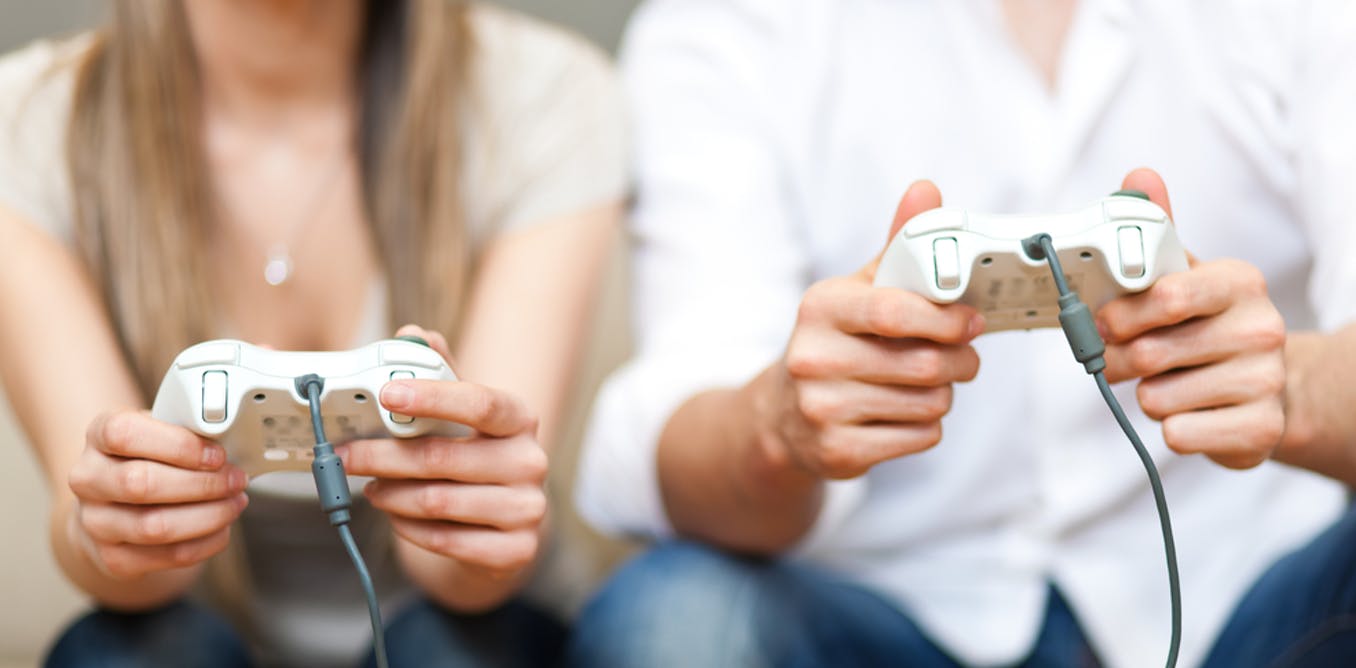Five ways to reboot your brain this summer

Minerva Studio/Shutterstock
During the summer school holidays, the social rhythm of life can become as crazed as a Keith Moon drum solo. So it’s important to remember to switch off from time to time. Indeed, this is much more important to us than we may think, and science has some surprising things to say about which activities are best to help us recharge in the often limited time we have available.
Here’s my rating of a number of popular restorative activities.
Video gaming
Just because we like something, doesn’t necessarily mean it’s good for us. While playing video games is tremendous fun and can enhance certain neurological processes, it can also drain them. Our capacity to focus on a given task is what psychologists call “directed attention”.
Directed attention, or concentration, is a little bit like a muscle. Through constant use, it gets tired and must be rested to be restored. Over time, as directed attention depletes, your ability to think, make good decisions and calculate, will also decline until you can restore some of your energy. If you’re already mentally tired, playing a few hours of a hyper-stimulating shoot-‘em-up will suck up your mental energy like milkshake up a straw, leaving your brain as mushy as the ice-cream they whizzed to make it.
** Video-gaming – great fun, but 2/10 for mental restoration.
**
Reading & TV
I’ve just published a book about this stuff, so you might expect me to sell the idea of reading as restorative. But, just like watching TV, the attention required to read 200 pages of War and Peace is heightened by the extra mental work, not only of following the plot and remembering your Bolkonskys from your Rostovs, but also of weeding out all of the distractions that compete for your attention as you turn the pages: screaming children, traffic noise, tweets, humming radiators, squawking seagulls. All take mental work to ignore. Eventually, this leads to directed attention fatigue – that feeling you have when you’ve watched ten straight hours of Breaking Bad, and you just … can’t … take … any more.
** Reading & TV – informative, educational, pleasurable, but only 4/10 if you want to be mentally restored.
**
Competitive sports
A wide variety of sports are effective at restoring us mentally. Psychologists have begun to theorise about why sports such as tennis are so good at relieving symptoms of stress. The human brain’s resources are competitive. If you’re at home, stressed and worried, the fact that you are doing nothing means that those stress signals pumping out of your limbic system (the brain’s emotional core) are given free reign over access to your mental resources.
So anything like tennis, that requires you to focus, concentrate and synchronise your body’s movement across all four dimensions will – among other things – drain energy from the limbic system because it is required in, say, the primary motor cortex. Feelings of stress and anxiety will struggle to compete for resources in the brain, and as such will diminish. The work will still require your mental focus, but your brain will be flooded with so many great neurotransmitters, you probably won’t notice.
** Tennis, football etc. Restorative function 6/10 – but who cares, you’ll feel great, anyway.
**
Walking
In recent years, the field of environmental psychology has blazed a trail in our understanding of what exposure to green spaces can give us. There have been hundreds of trials over the years that demonstrate everything from the effectiveness of having indoor plants in your workplace, to how access to green spaces can lower crime rates, as well as the extraordinary discovery that walking in a forest can lower your blood pressure.
A famous trial in 2008, actually tested the speed and depth of restoration among walkers in urban and rural areas. The result comes as little surprise: the subjects who had access to green environments were more mentally restored and were able to tackle more complex cognitive tasks. The effect was so potent that even when the trial subjects only looked at pictures of natural environments, the results were the same.
** Walking in a green space, allowing your mind to wander, restores directed attention quickly and effectively. 8/10.
**

The king of exercise.
lzf/Shutterstock
Running
Bruce Lee called running “the king of exercise”. He was not wrong. Runners can get all the “green space” benefits of walking, coupled with the neurological benefits of competitive sports. But the benefits continue: running is included among the kinds of exercise that actually make you smarter. Runners’ highs are, unsurprisingly given their name, most potent for runners (as opposed to cyclists, say).
Finally, endurance running is believed to effect a process in the brain called “transient hypofrontality” whereby portions of the prefrontal cortex basically deactivate, meaning brain function slows down. As a result, one’s sense of time, self and consciousness all melt away as other neural circuits fire up. This extreme flow state is the kind of mental reboot that cannot be bought anywhere at any price.
** Learn to run, for about an hour in a green space, and you’ll achieve 10/10 for restoration, stress relief, improved intelligence and zen-like levels of calm. You might even enjoy it as much as slaying some baddies in Call of Duty.
**

Vybarr Cregan-Reid receives funding from Arts Council England.




